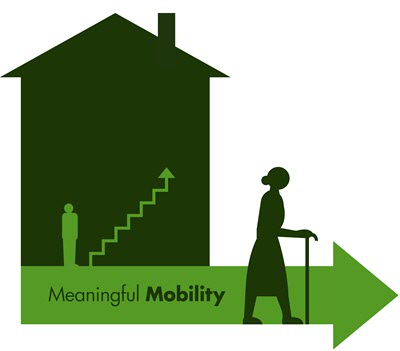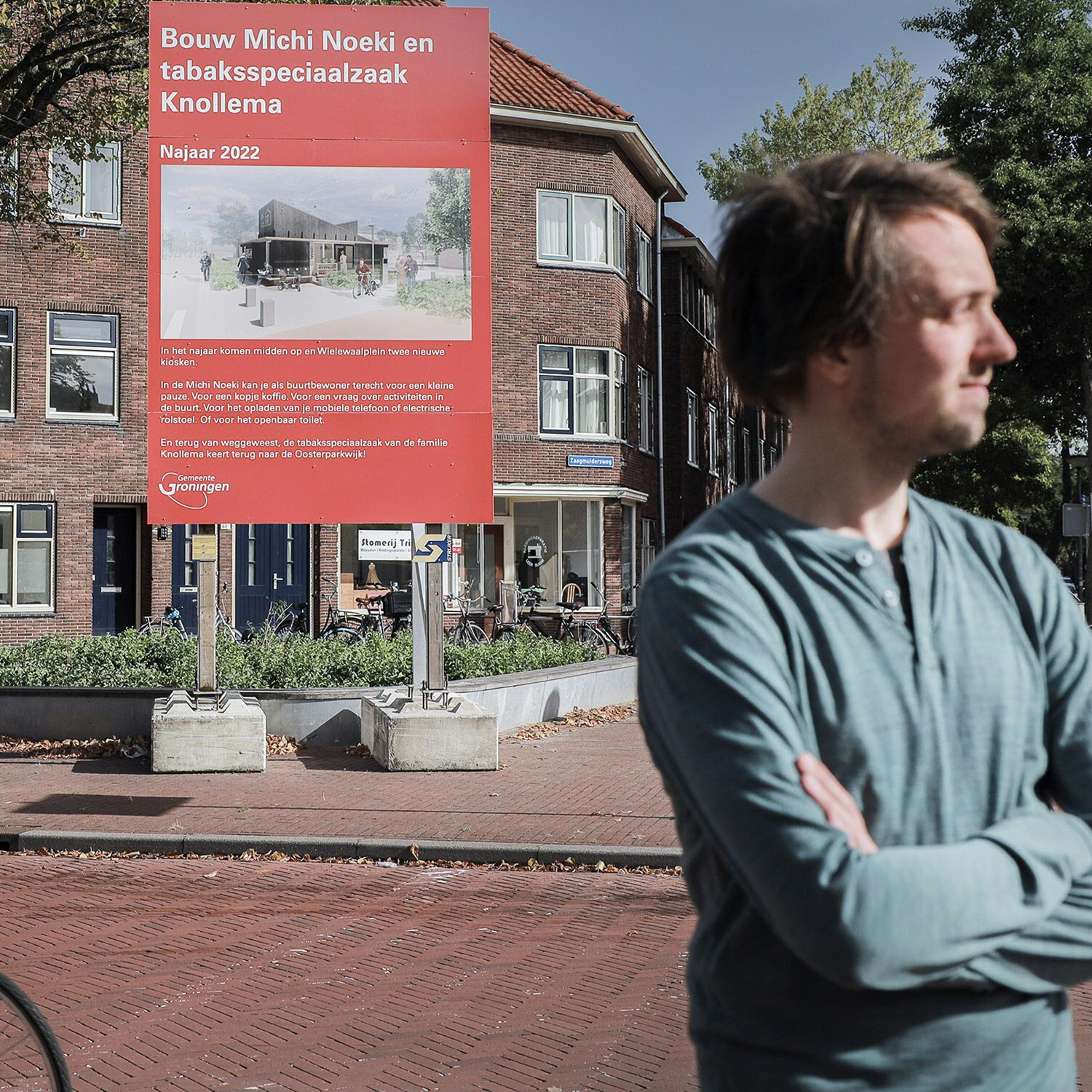Research highlights
The Urban and Regional Studies Institute (URSI) was established in November 1999 to coordinate research projects in the field of urban and regional planning, demography and human and economic geography within the Faculty of Spatial Sciences at the University of Groningen in the Netherlands. All research within URSI takes place within our TRACE research progamme, TRAnsformations, Communities and Environments.
Below are some interesting research highlights.
Enhancing Accessibility for All: Insights from the AccessCity4All Project
Enhancing Accessibility for All: Insights from the AccessCity4All Project
Local Project team: Samira Ramezani (PI, Project lead), Ward Rauws (Co-I and local stakeholder coordinator), Felix Pot (Collaborator), Mahdi Rahimi (Postdoctoral researcher), Taede Tillema (Collaborator), Thomas Zaw (Collaborator Province of Groningen)
The AccessCity4All project explores how residents experience accessibility in their neighborhoods, moving beyond traditional planning approaches that focus only on distance and travel time to essential services. While the 15-minute city concept aims to ensure that essential services like shops, schools, and healthcare are within easy reach, real-world access depends on much more than just proximity—it is also shaped by infrastructure (quality), safety, personal needs and desires, and social dynamics.
Findings from the Netherlands highlight that accessibility is not only about physical barriers but also about lifestyles, personal choices, and social environments. Some residents intentionally choose to live in quieter areas with fewer services, prioritizing peace over convenience. However, others struggle with limited transport options, inaccessible pathways, or a lack of community spaces that foster social interaction. By listening directly to residents, AccessCity4All reveals hidden obstacles to accessibility and helps urban planners design and plan more inclusive neighborhoods and services.
Floating Future
Floating Future
Margot van den Brink, Britta Restemeyer, Elizabeth MacAfee, Ina Horlings, Erika Varik
The NWO funded Floating Future project (2024-2029) aims to take floating development in the Netherlands to the next level. Examples of floating structures already exist, but mainly on a smaller scale consisting of single family homes, floating solar installations, and individual buildings. The Floating Future project will provide practical and theoretical insights in the fields of governance, technology, and ecology to enable scaling up floating developments in the Netherlands as a space saving and climate resilient solution.
The project includes a consortium of 44 partners and co-researchers from academia, government, civil society, and the private sector. There are five case studies being examined which are in various stages of the design and planning process: a floating offshore multipurpose hub; energy storage in the Port of Rotterdam; and housing developments in Amsterdam, Rotterdam, and the Green Heart. Researchers at the Faculty of Social Sciences lead a work package on governance of floating structures, including social, legal, and policy aspects. They are also engaged with coordinating and studying the Participatory Action Research of the project, which will combine scientific knowledge production with practical insights for the case studies.
MeaningfulMobility
MeaningfulMobility
Louise Meijering, Zeinab Sattari, Tess Osborne, Gerd Weitkamp, Billie de Haas, Thomas Lowe
The MeaningfulMobility project will develop a novel approach to movement within and between places in later life; for healthy and impaired older adults, and in different socio-cultural contexts. It aims to develop and employ an integrative approach to explain mobility practices in later life in relation to well-being.
The project has received funding from the European Research Council (ERC) under the European Union’s Horizon 2020 research and innovation programme (Grant Agreement No. 802202).
This mid-term report provides an overview of what we have achieved so far, as well as plans for the rest of the project.

Michi Noeki
Michi Noeki
Sander van Lanen
To improve the social framework in this neighbourhood, the Municipality of Groningen has decided to set up four so-called Michi-Noekis. These are small buildings, inspired by the Japanese Michi no eki, a resting place at the side of the road. In the Michi-Noeki, you will find a place to sit down and have a cup of coffee and a conversation, ‘because there is always someone there’, adds Van Lanen. The four small buildings will be set up in strategic locations in the neighbourhood. The aim of this project is to reduce loneliness and encourage participation.

Multidimensional Child Growth
Hinke Haisma, Gretel Pelto, Ali Dhansay, Shirish Darak, Barnali Chakrabotry, Rolando Gonzales Martinez, Zaina Mchome, Sridhar Venkatapuram, Sepideh Yousefzadeh, Pieter Boele van Hensbroek, Feliz Goos, Femke Hitzert, Lybrich Kramer, Bettie Oosterhoff, Marieke Sévaux, Sanne Visser
Over the past decades, Ministries of Health, NGOs and scientists have made substantial progress in reducing child mortality around the globe. However, many children still do not reach the age of five. The double burden of malnutrition creates new challenges particularly in low resource settings. Scientists and policy makers agree on the importance of multisectoral programmes to combat the double burden of malnutrition to improve child morbidity and mortality. Yet, for the assessment of the effectiveness of nutrition-sensitive interventions the focus is on the physical outcomes only.
In our project we build on the inspirational work by Amartya Sen and Martha Nussbaum in the field of human development. Similar to their conviction that human development should be assessed beyond economic growth and include for example indicators of health and education, we argue that child growth should be assessed beyond anthropometry. Following Sen and Nussbaum, we apply a capability approach for child growth and draw from the Convention of the Rights of the Child for identification of dimensions of child growth. The dimensions of child growth include: life and physical health, bodily integrity and safety, love and care, leisure activities, respect, social relations, participation, mental well-being, education, freedom from economic and non-economic exploitation, environment (internal and external risks), religion and identity, time autonomy, and ease of mobility to education or health centers. These dimensions were identified by children through a participatory process (Biggeri et al., 2006). Which dimensions are relevant and how they shape child growth depends on the context. For our research, we focused on two low resource settings: Tanzania and Bangladesh.

Supporting Cities in Climate Action
The City Research and Innovation Agenda (CRIA) and the Global Research and Action Agenda for Cities and Climate Change Science (GRAA): Supporting Cities in Climate Action
Zahra Assarkhaniki (Academic Collaborator)
The City Research and Innovation Agenda (CRIA) is a major international initiative led by the Global Covenant of Mayors for Climate & Energy (GCoM) that empowers cities to take effective climate action. It was developed in response to the 2018 Edmonton Declaration, informed by insights from hundreds of presentations at the Innovate4Cities 2021 Conference, co-hosted by UN-Habitat and co-sponsored by the IPCC.
As of 2024, the CRIA is evolving into the Global Research and Action Agenda for Cities and Climate Change Science (GRAA). This updated agenda contributes to the Seventh Assessment Report (AR7) cycle of the IPCC, specifically supporting the forthcoming Special Report on Cities and Climate Change, as well as the Working Group II and III reports emphasizing cities' critical roles in both climate adaptation and mitigation.
With over 11,700 cities and local governments committed to GCoM’s mission, the agenda addresses four essential questions:
- How do we build a robust evidence base?
- How should priorities be set?
- What actions should be taken?
- How can actions be financed and scaled?
The CRIA and GRAA initiatives foster collaboration among cities, researchers, and policymakers to deliver practical, science-based, and scalable solutions tailored to urban climate challenges.
